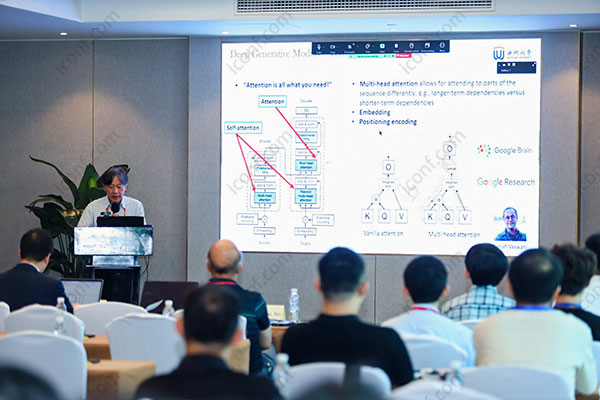

362 views||Release time: Jun 23, 2025
Attending an academic conference is one of the most valuable experiences for researchers and students. Whether you're looking to learn about new research, present your work, or network with experts, conferences provide a dynamic platform for academic growth.
But how exactly do you attend one? This article walks you through the entire process, from selecting the right event to participating effectively—plus how iconf.com simplifies your journey.

The first step is to identify a conference that matches your field and interests. Consider:
Subject area relevance
Indexing status (EI, Scopus, SCI, etc.)
Location and date
Type of participation (attendee, presenter, panelist)
Platforms like iconf.com allow you to filter conferences by discipline, indexing, country, and submission deadline—making selection faster and more accurate.
Conferences can be:
Online (virtual)
Offline (in-person)
Hybrid (both)
Each format has its own requirements. For example:
Virtual: may require video conferencing software
In-person: involves travel and visa preparation
Hybrid: gives flexibility but requires clear scheduling
Once you choose your conference, visit the official page (or find it through iconf.com) and:
Fill out the registration form
Choose your role: listener, presenter, or author
Pay the registration fee if required
Receive a confirmation email or receipt
Some conferences offer early bird discounts or student rates, so check deadlines.
If you're just attending (not presenting), prepare by:
Reading the schedule or abstract book
Marking sessions you're interested in
Bringing notebooks, laptops, or mobile devices for note-taking
Reviewing speaker bios to know who you want to network with
For presenters:
Prepare a PowerPoint or poster presentation
Practice your timing and delivery
Print your presentation materials if on-site
Confirm your session time and room
On the day(s) of the event:
Check in at the registration desk (in person) or log in (online)
Join sessions on time and be respectful of speakers
Engage by asking thoughtful questions during Q&A
Visit poster sessions, booths, or exhibitions if available
For in-person events, don’t forget to bring:
Valid ID
Your registration confirmation
A notebook or mobile device for notes
Conferences are not only for learning—they are for building academic relationships.
Exchange business cards or contact info
Connect on academic platforms like ResearchGate or LinkedIn
Follow up with email conversations or collaborative offers
iconf.com often includes information on keynote speakers and workshops, helping you prepare for networking opportunities.
Most academic conferences provide:
Attendance certificates
Presentation certificates
Access to conference proceedings or recordings
Be sure to request or download these items for your academic record.
After the conference:
Organize your notes
Write a summary or report if required by your institution
Follow up with new contacts
Use what you learned to improve your own research or plan future publications
Attending academic conferences is a key step in any researcher's journey. Whether you're a student, a first-time presenter, or a listener, knowing the process helps you make the most of the opportunity. Platforms like iconf.com streamline every step—from finding conferences to understanding participation requirements—so you can focus on learning and growing.